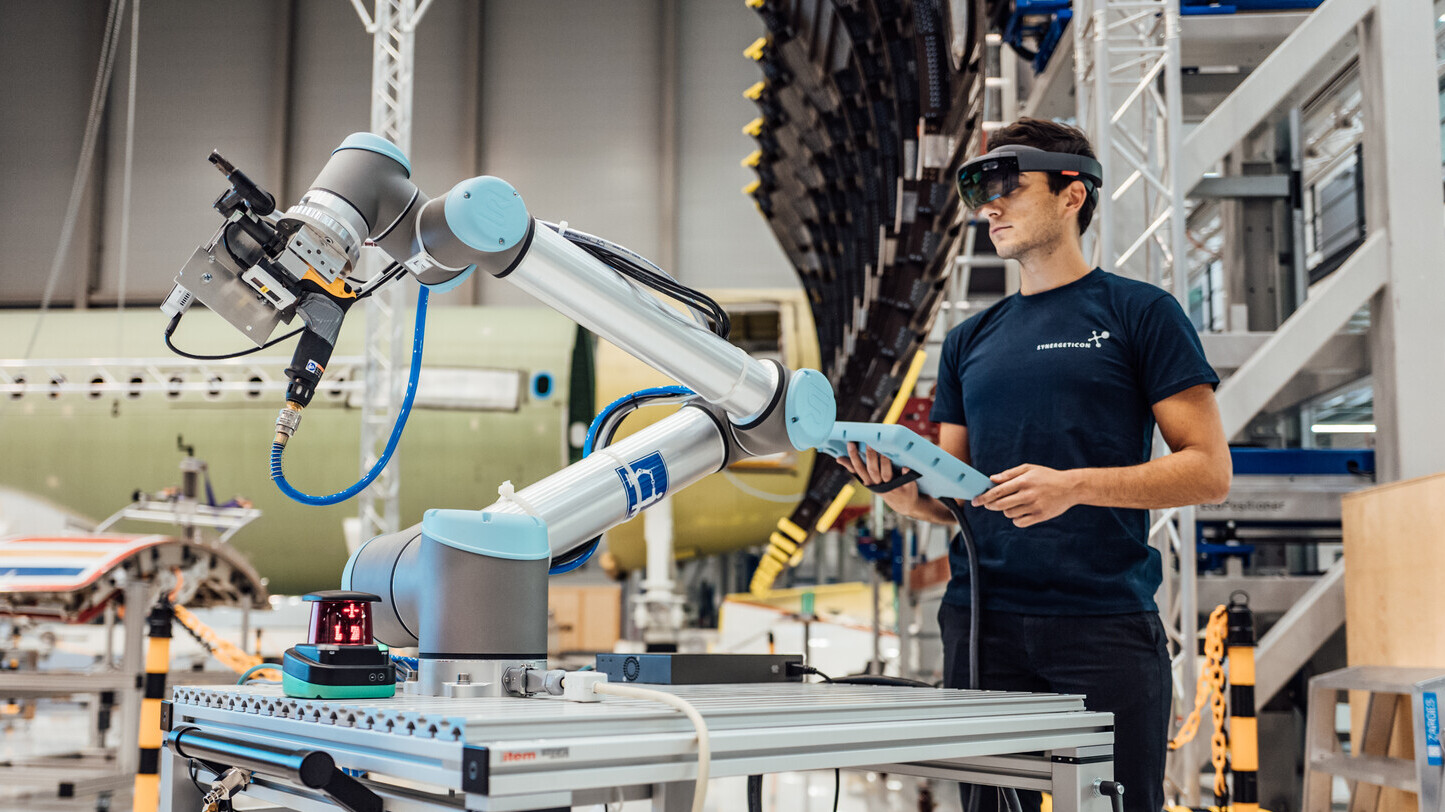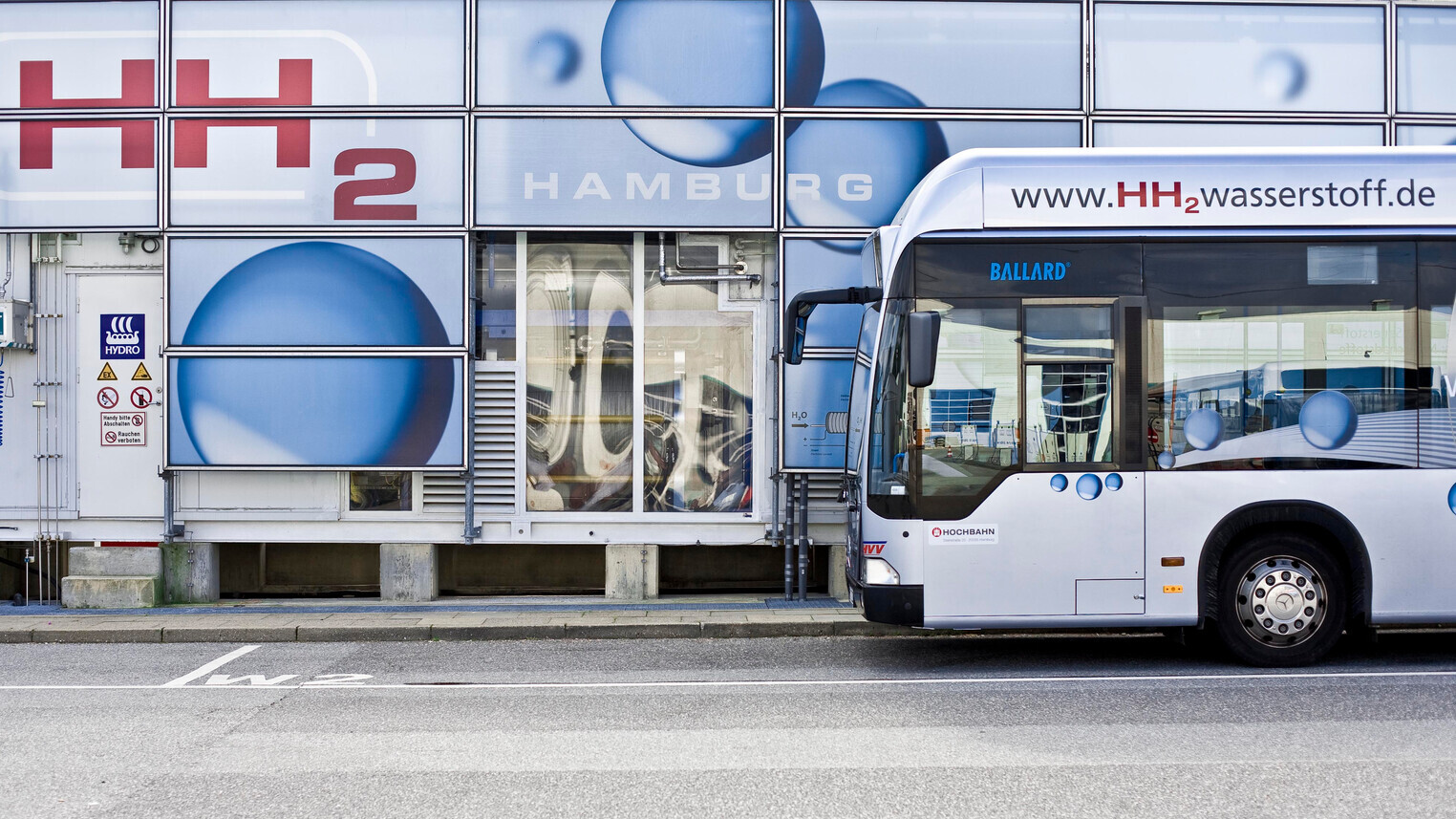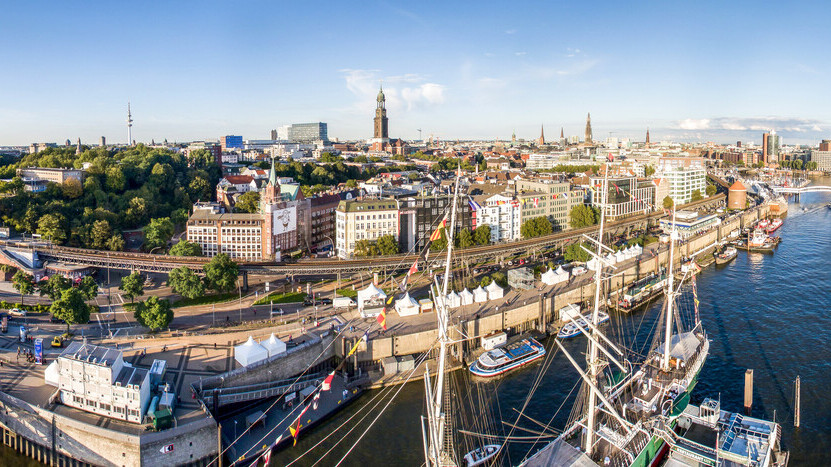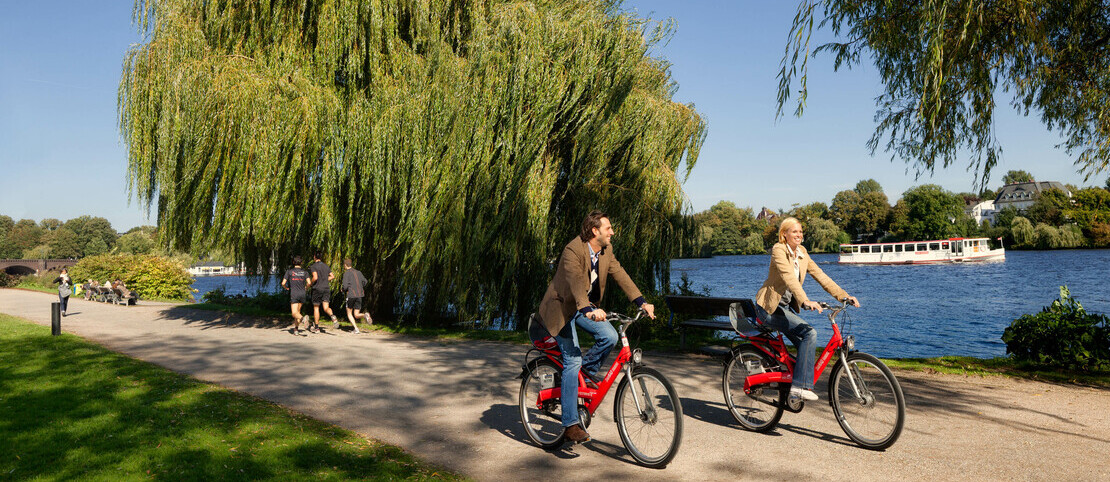Key facts about Hamburg as a business location
The Free and Hanseatic City of Hamburg is a both a municipality and a city-state of the Federal Republic of Germany. Hamburg is the second largest city in Germany, the seventh largest in the European Union, and the largest non-capital EU city.
As a business location, Hamburg's history as a port city and trading centre spans more than 1,000 years. Today, Hamburg features a diverse mix of industries and is yet highly specialised in numerous areas.
Hamburg's innovation landscape has a broad base. The city takes a leading role in numerous fields of technology, such as civil aviation, wind energy, laser and X-ray technology as well as port logistics. In recent years, Hamburg has also evolved as a thriving startup community.
Key facts about Hamburg
Over 5 million people live and work in the Hamburg Metropolitan Region. It is the economic centre of Northern Europe. Situated between the North Sea and the Baltic Sea, with the River Elbe as its lifeline and the vibrant, cosmopolitan city of Hamburg at its centre, the region is a hugely attractive business location with a high quality of life for international and national companies.
A diverse industry mix

Hamburg is more diversified than many other large cities and at the same time highly specialised. Hamburg is a strong player in the areas of services, logistics, industry, aviation, IT, media and creative industries, information and communication technology, medical, pharmaceutical, environmental and biotechnology, as well as life sciences and renewable energies. This makes Hamburg a technology leader in the following key areas:
- Materials and processes
- Mobility, transport and logistics
- Energy, climate, environmental protection and marine technology
- Healthcare, applied life sciences and nutrition
- Digitisation as a cross-cutting field
With its strong economy and industry mix on the one hand and renowned scientific institutions and their application-orientated initiatives and transfer projects on the other, Hamburg offers unique opportunities for cooperation. From basic research to test fields to market launches, Hamburg can provide professional partners for almost every step in the innovation process.
And this also applies to financing: there is an above-average volume of private capital in Hamburg. Many wealthy Hamburg citizens are very attached to their hometown and will be happy to invest their capital locally if the investment looks promising.
Hamburg as a startup hotspot

In recent years, Hamburg has created a supportive and integrative business environment for new entrepreneurs. Startups and scaleups set up business in Hamburg and benefit from the city's rich resources and established networks: various consulting companies, research organisations and cluster initiatives support young companies in building a strong network right from the start. Startups also have access to a wide range of funding programmes and financing options.
With its strategic location as Germany's hub for mobility, logistics and renewable energies, Hamburg offers unrivalled opportunities for startups to develop. The city's dynamic ecosystem, coupled with a strong infrastructure and supportive policies, makes Hamburg an ideal destination for companies wishing to expand in Europe.
Hamburg's innovation landscape

Spin-offs from universities and research institutions are important drivers of innovation. However, these startups need a business-friendly environment, enabling them to exchange ideas with other founders, utilise synergies and receive support in establishing professional corporate structures. Research and innovation (R&I) parks can be an ideal breeding ground for the global market leaders of tomorrow. In fact, the German Association of Innovation, Technology and Business Incubation Centres (BVIZ) reports a 90% survival rate for companies based at innovation centres.
Hamburg is currently creating a network of research and innovation parks initiated by the Hamburg Senate. Each provided with a scientific anchor institution, these R&I parks will offer commercial space for innovation-orientated companies, research institutions and startups. The parks are organised according to different research and development priorities and create synergies by mapping value chains.
Hamburg's innovation landscape is highly diverse, with a focus on numerous areas of technology such as civil aviation, wind energy, laser and X-ray technology as well as port logistics. In addition, Hamburg is recognised as a highly suited region for the development and production of green hydrogen. To promote this, a number of renowned companies have joined forces in establishing the Hamburg Hydrogen Network.
Hamburg's infrastructure

As a business location, Hamburg offers direct access to the North Sea and the Baltic Sea thanks to the port's location on the River Elbe. Hamburg is also well-connected by road. The A1 and A7 motorways are among the most important transport routes in Germany. The A24 motorway provides a fast connection to Berlin, and the scheduled A21 and A39 motorways will further relieve existing traffic routes in the region.
Hamburg has 5 long-distance railway stations: Hamburg Central Station, Hamburg Dammtor, Hamburg-Altona, Hamburg-Harburg as well as Hamburg-Bergedorf. The largest marshalling yard in Europe is located in Maschen south of Hamburg.
Hamburg Airport, also known as Hamburg Airport Helmut Schmidt since 2016, is Hamburg's international airport. It is the oldest and fifth largest airport in Germany.
Hamburg's export ratio
In 2024, goods worth 55.8 billion euros were exported from Hamburg. This corresponds to a decrease of 0.7% compared to the previous year. Important export goods include aircraft, watercraft and gold for commercial purposes.
Imports fell to 74 billion euros compared to the previous year. Important import goods were petroleum products, copper ores, copper and copper alloys as well as coffee. (source: Statistik Nord)
Hamburg's export ratio amounted to 34.5% in 2024. (source: Statistik BW)
Gross domestic product
Gross domestic product has risen to 161.9 billion euros in nominal terms in 2024. Taking price changes into account, this results in a real increase in economic output of 1.7 %. This result puts Hamburg well ahead of the trend at national level. In Germany as a whole, gross domestic product rose by 2.9% in nominal terms and fell by 0.2% in real terms. (source: Statistik Nord)
In 2024, the gross domestic product per employed person in Hamburg amounted to EUR 118,823. This puts Hamburg in first place in the ranking of federal states. (source: Statista)
High quality of life in Hamburg

Hamburg is one of the cities with the highest quality of life in the world and repeatedly scores high in rankings e.g. by Mercer and The Economist.
The green city on the Elbe and Alster rivers features many green spaces, avenues and waterways and the largest share of nature conservation areas of any German federal state. In addition to the many parks, there are also extensive wooded areas in the municipality. Other benefits include beautiful residential neighbourhoods and a lively art and cultural scene. Hamburg's profile as a cultural hub is distinctive and multi-faceted, with an international food scene, excellent shopping opportunities and an exciting nightlife.
Districts and quarters
The Free and Hanseatic City of Hamburg has a total area of around 755 sq km, making it the second largest city in Germany. Hamburg is divided into 7 districts (Hamburg-Mitte, Hamburg-Nord, Wandsbek, Altona, Eimsbüttel, Bergedorf and Harburg), with a total of 104 different quarters. Hamburg is primarily known as a port city that is connected to the North Sea via the River Elbe.
Population in Hamburg
Hamburg is expected to have more than two million inhabitants in 2030. This is predicted by the Statistics Office North.
In 2024, the population of the federal state of Hamburg was around 1.86 million. (source: Statista)
The population density in Hamburg's districts averages 2,616 people per km². (source: Statistik Nord).
Hamburg figures at a glance (December 31, 2024)
- Population: 1,86 million inhabitants
- Area: 755 sq km - 7 districts with 104 quarters
- Population density: 2,616 inhabitants/km²
- Employees subject to social insurance contribution: 1,073,152
- GDP: 161.9 billion euros
- Export ratio: 34.5%
- Purchasing power per inhabitant: 30,100 euros (Statistik Nord)